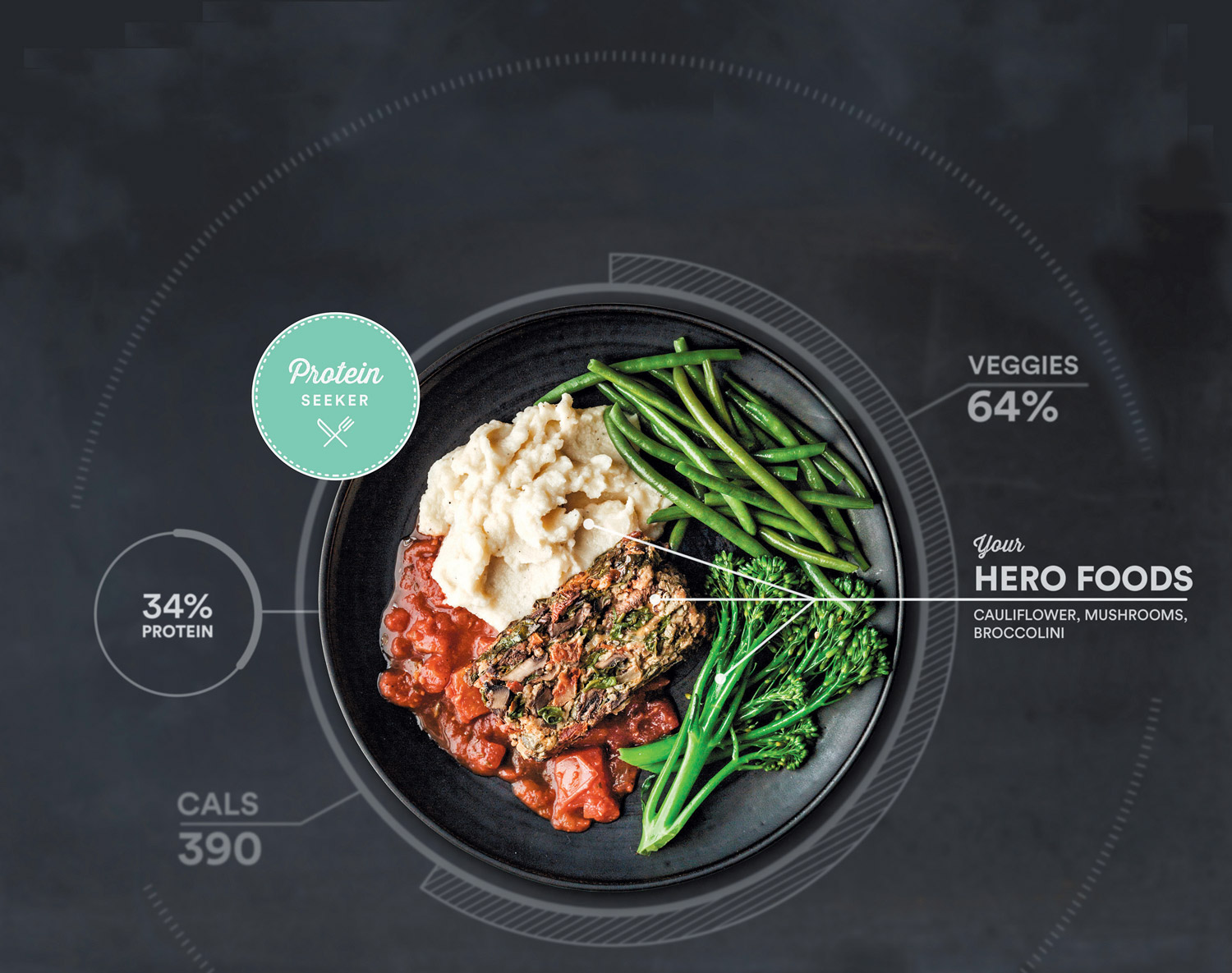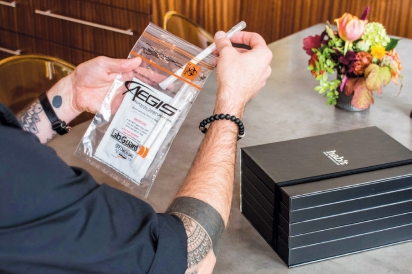Nutrition Gets Personal
This is part one of a four-part quarterly series reviewing a variety of companies that are bringing personalized nutrition to the non-medical community. For each company reviewed in the months ahead, I will be the guinea pig, taking the test, waiting for the results and following their recommendations for two months before reporting my findings here. We’ll learn together how these tests work—and perhaps if this test is right for you.
Modern science has come to view the amazing human body as a life-sustaining planet, complete with multiple ecosystems in, on and around it. The gut terrain, which we so strongly affect with food and farming, is linked to nearly every health issue in the body. It is like a rainforest, populated with so many diverse species that we haven’t even come close to finding or naming them all.
A beautiful thing about the body is that each person has a unique composition of their biological “planet.” With the mapping of the human genome, published officially in April 2003, and the continued mapping of the human microbiome via groups like the American Gut Project, Human Food Project and the Earth Microbiome Project, more and more companies are popping up that recognize the need for some individually personalized “gardening tools” that give specific recommendations for diet and/or supplements based on test results.
As a nutritionist, I am always looking for ways to customize eating and lifestyle plans for individuals to help them realize the most benefit. With so many diets out there, some of which are completely contrary to others, it is hard to figure out the best choice for each person. For example, a ketogenic diet may be fantastic for one person’s health but devastating for another’s.
With the influx of these personalized nutrition companies, there is exciting potential for creating a nutrition plan specifically for the inner terrain of the person tested—one where the genetic, microbial, blood and hormone levels are all considered.
Here is the first test I tried, chosen because it utilizes DNA testing, something that is very in vogue today. I believe that we are not limited by our DNA, but have the ability to thrive regardless of the “cards we are dealt.”
AT A GLANCE
Company: Habit
What They Are and What They Do: Habit uses several nutrition-related biomarkers (blood glucose, insulin measurements, cholesterol and triglycerides), DNA swabs, self-reported body metrics (weight, height, waist circumference) and personal health goals to make specific nutrition recommendations.
In other words, they check to see how the body handles carbs, proteins and fats and uses that information to tell clients how to best eat for their body. Their goal, according to founder Neil Grimmer’s TedX talk, is to help people feel better in their body and to gain eating confidence in social and emotional food situations.
They have add-on options of coaching sessions with certified dietitians/nutritionists (which I did not do).
Cost: One test runs $299. However, you can get a $100 discount if you upload your Ancestry or 23andMe genetic test results. Habit recommends testing every six months, so it would be around $600 for the year. The test kit arrived about six days after I ordered.
The Test: The test comes in a gorgeous custom box with written/ graphic instructions and a link to the website, which also has very clear and detailed instructions, making it quite simple to manage. It needs to be done within a three-hour window after a 10-hour fast. Doing it in the morning on a day off of work is ideal. The testing process includes a fasting blood test (a tool is included for an easy finger prick) followed by chugging a VERY sweet shake consisting of a proprietary combination of carbs/proteins/fats, followed by two more blood tests at specific intervals. Getting the results back can take anywhere from four to 12 weeks.
The Recommendations: Results come with a “type” designation, a calorie consumption suggestion and daily food serving recommendations. According to Habit, I am a “Protein Type.” This means that while my blood tests were in optimal ranges and showed that I did fine on sugar, my genes show that I might have some propensities toward heart disease and thus might not handle carbs as well as other people. None of this surprised me. I was, however, taken aback when they recommended that I increase my proteins, especially plant-based, to almost three times what I was eating and increase my calorie consumption by almost 1,500 calories per day.
Results also come with recipes. These are delicious wholefood- based recipes that are specific to the individual serving recommendations they make. You can further customize these recipes by specifying things like no gluten, no dairy, pescatarian, vegetarian and vegan. I suspect if someone ate just the nine recipes provided each week, the results would be pretty good.
My Outcome: In all fairness, the two months that I followed Habit’s plan, November and December, were some of my busiest of the year, ( meaning I had more stress and less cooking time than usual.) Additionally, while giving really terrific food suggestions and recipes, Habit doesn’t really offer strong restrictions, other than staying away from refined foods (which I already do), preferring the gentle and usually more successful approach of “eat this.”
Having been a “real foodie” for 10-plus years and a nutritionist for three, the only changes I needed to make in my diet to fulfill the recommendations were to increase my protein and caloric intake. But I’m pretty sure I increased my alcohol consumption then too. (Hello, holidays!) I didn’t use a lot of their recipes because I was cooking for six people, but I used several ideas from them.
In truth, I didn’t notice much difference in my weight, my digestion or how I felt physically when following “my nourish plan,” but I may be an outlier.
In a Nutshell: If you’re new to eating whole organic foods, or perhaps just tuning in to the needs of your body, or if you’re someone who thrives with clear directions and recipes to follow, doing a Habit plan could be a fantastic step toward a healthier body.
If you’re a more seasoned health seeker, someone who needs a list of restrictions or someone who maybe has deeper health concerns like autoimmune issues or allergies, Habit might not be the complete answer to your personalized nutrition hopes and dreams.
In early February 2019, Habit was acquired by the gut microbiome testing company Viome. As this adds another important element to the testing procedure, it may greatly increase client benefits and success. For more info, visit Habit.com.





